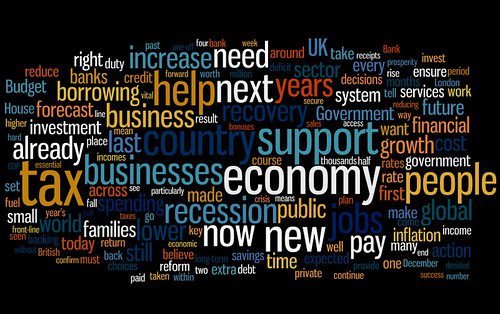Last updated on December 5th, 2023 at 09:15 am
The COVID-19 pandemic has so far infected over 1.3 million people and killed over 70,000 people, and has spread to more than 205 countries. With geographies the world over observing lockdowns and self-quarantine to contain the transmission of this virus, the outbreak is causing widespread concern and economic hardship for businesses across the globe. As uncertainty on ending lockdowns/self-quarantine looms large, the situation is changing quickly with widespread impacts. The effects of COVID-19 pandemic are being felt in almost every sector.
It is clear now that we are in disruptive times; with the absence of workforce and dwindling consumer demand businesses are reeling under immense stress. Almost all sectors barring a handful few are doing well. The situation may get worse for businesses if the situation fails to improve. Governments over the world are counseling businesses with guidance on crisis management and response, operations and supply chain, finance and liquidity, tax and trade, etc.
This pandemic has caused major disruption to global economies owing to the containment measures and lockdowns all over. It is quite evident now that because of the virus-containment measures global economies will be hit to a great extent. Lockdowns, social-distancing and other coronavirus-containment measures have led to a massive fall in the global economic activity – decreasing consumer demand, fall in crude oil prices, crash in global stock markets, and equally decreasing global banking revenues.
The financial services sector is currently reeling under serious stress and surrounded with challenges on multiple fronts. Social distancing rules, reduction in bank opening hours, etc. are causing less transactions at banks and has almost halved loan procurements.
In such testing times, consumers are expecting banks to pass on relief measures. Many have lost jobs, drop in income, fear of defaulting on loans are some of the reasons consumers are frantically trying to contact their bank with. The finance sector has reported drop in revenues, poor cash flows, rising leverage, and stretched valuations of firms and seek help through special measures.
Fintech firms have also reported a drop in demand as customers prefer predictable investments in such critical situations. Few Fintech firms stand to benefit from this scenario with an increased demand for online and mobile banking services.
The situation needs constant and mindful handling from finance companies as they seek to restore consumer confidence. They’ll have to be proactive in providing with seamless digital services to increase their business.
The COVID-19 pandemic could be a marketing communication opportunity in disguise. Few brands have realized this fact and have initiated their line of communication to capitalize on this opportunity. The correct and ethical marketing communications strategy will help strengthen brand loyalty and also raise brand awareness; if your communications help consumers deal with the personal economic issues they are experiencing, the message will be welcome.
Emphasis should be on achieving brand-oriented goals with customer personalized messaging. The key is to be able to deliver messages which can help create more business and retain customers.
Also Read: How Coronavirus May Impact Global Investment Bank Revenues

